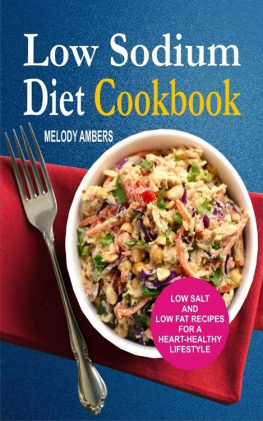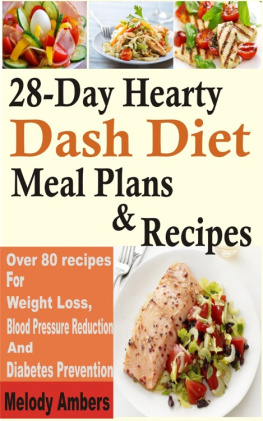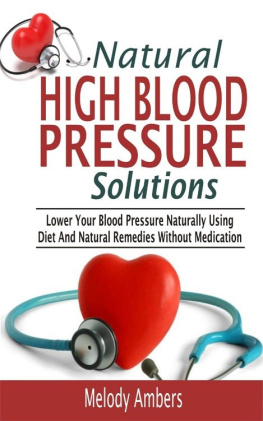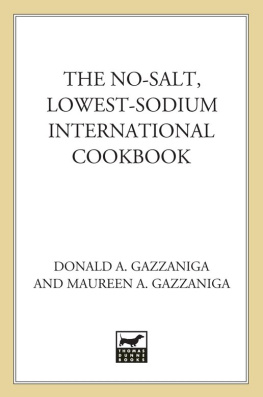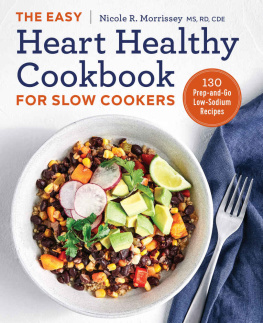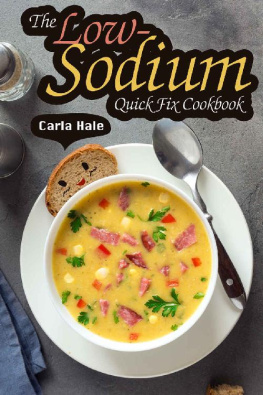Melody Ambers - Low Sodium Diet Cookbook: Low Salt And Low Fat Recipes For A Heart-Healthy Lifestyle
Here you can read online Melody Ambers - Low Sodium Diet Cookbook: Low Salt And Low Fat Recipes For A Heart-Healthy Lifestyle full text of the book (entire story) in english for free. Download pdf and epub, get meaning, cover and reviews about this ebook. year: 2017, publisher: Mayorline, genre: Detective and thriller. Description of the work, (preface) as well as reviews are available. Best literature library LitArk.com created for fans of good reading and offers a wide selection of genres:
Romance novel
Science fiction
Adventure
Detective
Science
History
Home and family
Prose
Art
Politics
Computer
Non-fiction
Religion
Business
Children
Humor
Choose a favorite category and find really read worthwhile books. Enjoy immersion in the world of imagination, feel the emotions of the characters or learn something new for yourself, make an fascinating discovery.
- Book:Low Sodium Diet Cookbook: Low Salt And Low Fat Recipes For A Heart-Healthy Lifestyle
- Author:
- Publisher:Mayorline
- Genre:
- Year:2017
- Rating:4 / 5
- Favourites:Add to favourites
- Your mark:
- 80
- 1
- 2
- 3
- 4
- 5
Low Sodium Diet Cookbook: Low Salt And Low Fat Recipes For A Heart-Healthy Lifestyle: summary, description and annotation
We offer to read an annotation, description, summary or preface (depends on what the author of the book "Low Sodium Diet Cookbook: Low Salt And Low Fat Recipes For A Heart-Healthy Lifestyle" wrote himself). If you haven't found the necessary information about the book — write in the comments, we will try to find it.
Low Sodium Diet Cookbook: Low Salt And Low Fat Recipes For A Heart-Healthy Lifestyle — read online for free the complete book (whole text) full work
Below is the text of the book, divided by pages. System saving the place of the last page read, allows you to conveniently read the book "Low Sodium Diet Cookbook: Low Salt And Low Fat Recipes For A Heart-Healthy Lifestyle" online for free, without having to search again every time where you left off. Put a bookmark, and you can go to the page where you finished reading at any time.
Font size:
Interval:
Bookmark:
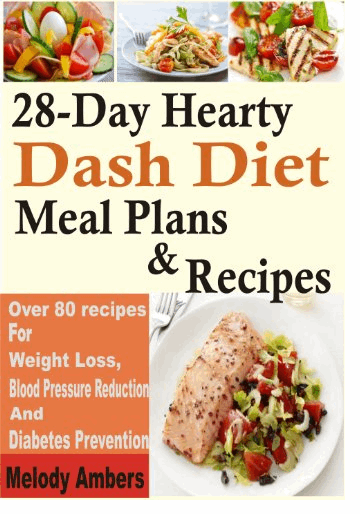
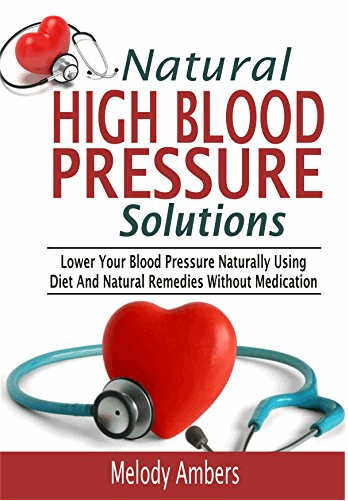
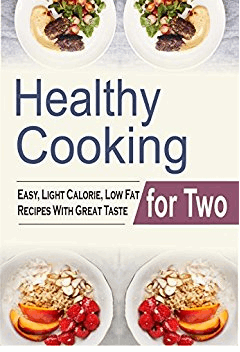
This is why it is imperative that you control the amount of sodium you consume. And if your blood pressure is elevated, to restrict your sodium intake, while increasing your consumption of potassium. A cutback in sodium consumption will lower blood pressure and when blood pressure is reduced, a person has a low risk of developing heart disease. In reality, sodium plays an essential function in the body. It is an important nutrient (mineral) that helps to maintain proper blood pressure, control fluid balance and regulate the functions of nerves and muscles. You do not need lots of sodium to perform these functions.
Our body needs only a certain measure of sodium and another dietary mineral, potassium to draw out excess fluid from the bloodstream. Thankfully, it is easy to get the required sodium from the food we eat as sodium is naturally occurs in our foods. As a matter of fact, we need to ensure that we arent getting more sodium than we need. This is because about 70% of the sodium we eat is hidden in processed foods, takeaways and food preservations, while the rest comes from the added salt during cooking or at the table. So how much sodium is too much? On the average, Americans eat at least 5 teaspoons of salt per day. This is nearly 20 times as much as required by the body! We need just 1/4 teaspoon of salt each day.
Healthy adults need 2,300 milligrams of sodium a day while people with high blood pressure, chronic kidney disease, diabetes or above 50 years of age are advised to limit sodium intake to below1, 500 milligrams daily. By simply sticking to whole unprocessed foods , without adding salt or sauces and eating more healthy low sodium foods like vegetables, fruits, grains, beans, nuts, legumes, meats, fish and oils, you can avoid a high sodium diet. Just ensure that you dont prepare your food with salt or with sauces that contain salt or eat canned foods.
A sodium content of 20% DV or more is high. According to the Food and Drug Administration, low sodium foods are those with 140 mg of sodium or less per serving, while very low sodium contains 120 mg or less of sodium per. High sodium means 480 mg or more of sodium per serving, and this should be avoided. Additionally, look for foods that are labeled low sodium, no salt added or reduced sodium. Shop For Low Sodium Foods It is important to select low sodium foods when shopping. 3. 3.
Prepare Your Meals With Less Sodium Remove salty foods from your diet. Cook with ingredients with low sodium content or no sodium at all. When cooking, pasta or rice, it is important that you do not add salt to the water. If using canned foods that arent low in sodium, rinse before cooking or eating. Do not use softened water for cooking or drinking due to the added salt it contains. Additionally, if you buy a food that comes with a seasoning packet, be sure to use part of the packet only.
Season your foods with vinegar, herbs, spices, lemon, ginger, garlic and pepper. Finally, The American heart association says table salt is about 30% sodium, so take the darn salt shaker off your table! 4. Cook From Scratch Home-cooked meals are the best. Eat more of them. They naturally contain lower sodium content than boxed mixes. Your favorite prepackaged meals may be very high in sodium.
Cooking from scratch helps you to be sure of whats exactly in your food, which is why the reci pes that are been assembled below will be of tremendous benefit to you. 5. Limit Processed Foods. Most of the sodium in our diet comes from packaged, processed foods. Even when the processed food does not taste salty, they are usually packed with a large amount of sodium. Eat fewer processed and packaged foods or if possible, eliminate completely.
Meats that have been processed and cured will have much more sodium in them than fresh meats. Similarly, canned vegetables usually contain more sodium than fresh ones. Buy fresh foods and cook at home. This way, you control your salt intake 6. Choose Foods With Potassium. Foods with potassium content will counter the effects of sodium in your body and can help to reduce blood pressure.
Beans, potatoes, yoghurt and bananas are some examples of potassium-rich foods. Additionally, some salt substitutes are made from potassium. Be sure to read the label before purchase. 7. Avoid Medications Containing Sodium Some medications such as Bromo Seltzer and Alka Seltzer contain sodium.
But note that some fresh meat may have sodium. To be safe, check the label always. Shop for:
- Chicken or turkey breast without skin
- Lean cuts of beef or pork
- Fish or shellfish
- Low-sodium canned fish
- Drained, water or oil packed canned fish or poultry
- Canned beans with the label low sodium or no salt added
- Eggs and egg substitutes
- Dried peas and beans
- Unsalted nuts and seeds
- Fat-free or low-fat yogurt
- Fat-free or low-fat (1%) milk
- Ice cream and ice milk
- Low- or reduced-sodium cheese; this includes ricotta cheese, mozzarella, cream cheese and natural Swiss cheese
- Soymilk with added calcium
Font size:
Interval:
Bookmark:
Similar books «Low Sodium Diet Cookbook: Low Salt And Low Fat Recipes For A Heart-Healthy Lifestyle»
Look at similar books to Low Sodium Diet Cookbook: Low Salt And Low Fat Recipes For A Heart-Healthy Lifestyle. We have selected literature similar in name and meaning in the hope of providing readers with more options to find new, interesting, not yet read works.
Discussion, reviews of the book Low Sodium Diet Cookbook: Low Salt And Low Fat Recipes For A Heart-Healthy Lifestyle and just readers' own opinions. Leave your comments, write what you think about the work, its meaning or the main characters. Specify what exactly you liked and what you didn't like, and why you think so.

